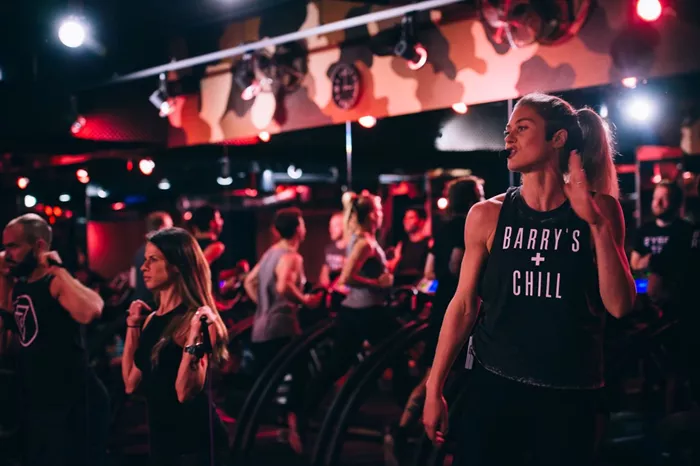As the boutique fitness industry faces challenges, Barry’s Bootcamp announced new investment on Monday from Princeton Equity Group. This move comes amid a wave of exits from other players in the market.
Joey Gonzalez, co-CEO of Barry’s, shared insights about the company’s strategy during an interview with CNBC. “What sets Barry’s apart is our premium position in the market,” Gonzalez said. “We focus on minimizing brand dilution and always aim to enhance the Barry’s experience.”
This round of funding will help Barry’s improve client experience and strengthen its brand in an increasingly crowded industry. Known for its high-intensity running, lifting, and training classes in signature red-lit rooms, Barry’s operates 89 studios globally, attracting over 7 million visits in 2024.
Princeton Equity Group, a private equity firm specializing in franchising and consumer services, is managing $1.3 billion in assets. The firm has previously invested in wellness brands such as Massage Envy and D1 Training. The exact amount of the investment in Barry’s was not disclosed.
The new funding builds on a decade of private equity backing, including investments from LightBay Capital and North Castle Partners. Gonzalez mentioned that the funds would support Barry’s expansion in 12 U.S. cities this year, including Charleston, South Carolina; Hoboken, New Jersey; and Salt Lake City. The company also plans to open locations in Madrid, Athens, and Dublin.
“This partnership allows us to strengthen our operations in the UK and Canada,” Gonzalez added. “We can now oversee these markets more closely, building tighter communities and streamlining operations.”
The global boutique fitness market, valued at nearly $48 billion in 2023, is projected to grow to $86 billion by 2030, according to Research and Markets. Despite this growth, several major brands have struggled to expand their customer base. For instance, Xponential Fitness sold two of its underperforming boutique chains, Stride Fitness and Row House, last year.
Analyst Randal Konik from Jefferies pointed to macroeconomic factors and shifts in consumer spending as potential challenges. However, he noted that the focus on health and wellness post-COVID, along with a growing interest in strength training, could support demand for fitness classes and gym memberships.
Piper Sandler analyst Korinne Wolfmeyer cited uncertainty over unit growth at Xponential as a reason to be cautious about the company’s stock.
In contrast, Gonzalez believes Barry’s is defying these trends. “Barry’s has always focused on fitness fundamentals, with effectiveness at the core,” he said. “We’ve stayed true to our strengths—providing a unique, immersive fitness experience that members love.”


